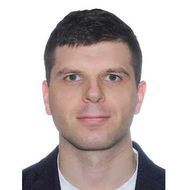AI to Enable Accurate Modelling of Data Storage System Performance

Researchers at the HSE Faculty of Computer Science have developed a new approach to modelling data storage systems based on generative machine learning models. This approach makes it possible to accurately predict the key performance characteristics of such systems under various conditions. Results have been published in the IEEE Access journal.
Data storage systems play an important role in today’s digital world, as they are responsible for the safety and prompt availability of vast amounts of information. These systems consist of many components, including controllers, HDD and SSD disks, as well as cache memory, which work together to ensure fast and efficient operation. To achieve optimal performance, it is essential to accurately predict how these systems will function in different scenarios, such as when the load on the system changes.
Researchers at the HSE Faculty of Computer Science developed a new approach to modelling data storage system performance, which relies on generative machine learning models. The authors proposed a method that provides high-precision predictions of the key performance characteristics of the systems: the number of input/output operations per second (IOPS) and latency.
The modelling includes two stages. First, the scientists collect data by measuring the system’s performance under various loads and configurations. This data is then fed to two special generative models: the CatBoost regression model and the normalizing flow model. CatBoost works well with tabular data and can accurately predict average values and performance deviations. The normalizing flow model produces a complete distribution of possible outcomes, taking into account data uncertainties and variability.

Mikhail Hushchyn
‘One of the main advantages of our method is that it does not require detailed knowledge of the internal structure of the system components. This is often impossible due to the manufacturers’ trade secrets. Instead, our generative models are trained directly on real-world data. For instance, in our study, we trained a model using 300,000 measurements. This makes our approach versatile and applicable to any type of data storage system,’ says study author Mikhail Hushchyn, a senior research fellow at the HSE Faculty of Computer Science.
The researchers tested the accuracy of the proposed approach using Little's law, a fundamental principle of queuing theory. According to test results, these predictions are highly consistent with real observations: prediction errors range from just 4–10% for IOPS and 3–16% for latency, while the correlation with the observed values reaches 0.99.

Aziz Temirkhanov
‘Our proposed approach opens up broad prospects for optimising and planning the operation of data centres. It makes it possible to predict the behaviour of the system amid load changes, identify potential performance issues, and optimise power consumption. Furthermore, expensive physical experiments are no longer required for accurate modelling,’ stated Aziz Temirkhanov, a junior research fellow at the Laboratory of Methods for Big Data Analysis.
The experimental code and measurements of the storage system performance are publicly available.
The research was carried out within the Mirror Laboratories project of HSE University on improving the efficiency of data centres and data storage systems using artificial intelligence methods.
See also:
'We View Mathematics as a Universal Language for Natural Sciences, Economics, and Computer Science'
The Laboratory for Geometric Algebra and Applications at the HSE Faculty of Economic Sciences is developing a universal language for mathematics, physics, and other exact and natural sciences. It is creating computational methods that are applied in geometry, physics, machine learning, engineering, computer science, and other fields. The laboratory’s staff, including doctoral students, have published numerous articles in leading scientific journals and have taken part in major international conferences. Dmitry Shirokov, Head of the Laboratory, spoke with the HSE News Service about their work.
HSE Psycholinguists Launch Digital Tool to Spot Dyslexia in Children
Specialists from HSE University's Centre for Language and Brain have introduced LexiMetr, a new digital tool for diagnosing dyslexia in primary school students. This is the first standardised application in Russia that enables fast and reliable assessment of children’s reading skills to identify dyslexia or the risk of developing it. The application is available on the RuStore platform and runs on Android tablets.
HSE University to Join Physical AI Garage Project by Yandex
Yandex is collaborating with leading Russian universities to launch a new educational programme called Physical AI Garage. This initiative unites five universities—HSE University, ITMO, MIPT, MAI, and MEPhI—to train future professionals in physical artificial intelligence by tackling real-world industrial challenges. The programme is free, and participants will receive scholarships.
Physicists Propose New Mechanism to Enhance Superconductivity with 'Quantum Glue'
A team of researchers, including scientists from HSE MIEM, has demonstrated that defects in a material can enhance, rather than hinder, superconductivity. This occurs through interaction between defective and cleaner regions, which creates a 'quantum glue'—a uniform component that binds distinct superconducting regions into a single network. Calculations confirm that this mechanism could aid in developing superconductors that operate at higher temperatures. The study has been published in Communications Physics.
Neural Network Trained to Predict Crises in Russian Stock Market
Economists from HSE University have developed a neural network model that can predict the onset of a short-term stock market crisis with over 83% accuracy, one day in advance. The model performs well even on complex, imbalanced data and incorporates not only economic indicators but also investor sentiment. The paper by Tamara Teplova, Maksim Fayzulin, and Aleksei Kurkin from the Centre for Financial Research and Data Analytics at the HSE Faculty of Economic Sciences has been published in Socio-Economic Planning Sciences.
Larger Groups of Students Use AI More Effectively in Learning
Researchers at the Institute of Education and the Faculty of Economic Sciences at HSE University have studied what factors determine the success of student group projects when they are completed with the help of artificial intelligence (AI). Their findings suggest that, in addition to the knowledge level of the team members, the size of the group also plays a significant role—the larger it is, the more efficient the process becomes. The study was published in Innovations in Education and Teaching International.
New Models for Studying Diseases: From Petri Dishes to Organs-on-a-Chip
Biologists from HSE University, in collaboration with researchers from the Kulakov National Medical Research Centre for Obstetrics, Gynecology, and Perinatology, have used advanced microfluidic technologies to study preeclampsia—one of the most dangerous pregnancy complications, posing serious risks to the life and health of both mother and child. In a paper published in BioChip Journal, the researchers review modern cellular models—including advanced placenta-on-a-chip technologies—that offer deeper insights into the mechanisms of the disorder and support the development of effective treatments.
Using Two Cryptocurrencies Enhances Volatility Forecasting
Researchers from the HSE Faculty of Economic Sciences have found that Bitcoin price volatility can be effectively predicted using Ethereum, the second-most popular cryptocurrency. Incorporating Ethereum into a predictive model reduces the forecast error to 23%, outperforming neural networks and other complex algorithms. The article has been published in Applied Econometrics.
Administrative Staff Are Crucial to University Efficiency—But Only in Teaching-Oriented Institutions
An international team of researchers, including scholars from HSE University, has analysed how the number of non-academic staff affects a university’s performance. The study found that the outcome depends on the institution’s profile: in research universities, the share of administrative and support staff has no effect on efficiency, whereas in teaching-oriented universities, there is a positive correlation. The findings have been published in Applied Economics.
Physicists at HSE University Reveal How Vortices Behave in Two-Dimensional Turbulence
Researchers from the Landau Institute for Theoretical Physics of the Russian Academy of Sciences and the HSE University's Faculty of Physics have discovered how external forces affect the behaviour of turbulent flows. The scientists showed that even a small external torque can stabilise the system and extend the lifetime of large vortices. These findings may improve the accuracy of models of atmospheric and oceanic circulation. The paper has been published in Physics of Fluids.


